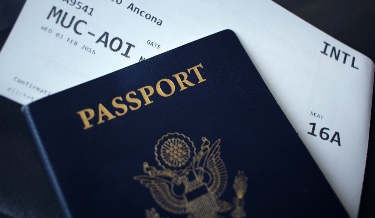
The deportation process in the United States is lengthy and often complex. In many cases, the process can take years.
The outcome of these proceedings, no matter how slow or quick, could drastically change your life. It is always best to have skilled, aggressive immigration representation going into deportation proceedings.
Learn how we can assist you by calling (336) 724-2828 or sending us an online message today.
Key Points
- The deportation process can take months or even years, depending on whether the case follows the standard removal process or qualifies for expedited deportation.
- Removal proceedings involve multiple stages, including a Notice to Appear, one or more Master Calendar Hearings, an Individual Hearing, and possibly an appeal.
- Many factors affect the timeline, such as criminal history, family ties, prior removal orders, fear of persecution, and whether an appeal is filed.
How Long Is the Deportation Process?
The exact length of the deportation process will vary widely from case to case. Further, some cases may qualify for an expedited deportation process, which can result in a removal order being issued within weeks. But typically, the deportation process can take up to three years to complete.
Deportation Proceedings Timeline
Removal proceedings are the first formal step in the deportation process. However, the process informally begins when the authorities become aware of the undocumented immigrant’s presence in the United States.
An undocumented immigrant may get on the immigration authorities’ radar after they are arrested for a crime, a workplace raid, or an anonymous phoned-in tip.
Notice to Appear
No matter how it comes about, once you are on the U.S. immigration authorities’ radar, you will receive a notice to appear at a master calendar hearing. The notice to appear typically includes the reason the government is seeking your removal and advises you of your right to counsel.
Master Calendar Hearing
The Master Calendar Hearing is a preliminary hearing in the removal process.
At this hearing, the judge advises you of your official charges and gives you the opportunity to admit or deny those charges. The court then schedules the next hearing. There may be more than one Master Calendar Hearing in your case.
Individual Hearing
The Individual Hearing is often called a merits hearing or a trial. At the Individual Hearing, you will be allowed to present testimony, evidence, and arguments against deportation. The Individual Hearing can take a few hours or several days, depending on your case’s facts and circumstances.
After the hearing, the judge will either grant you relief or enter a removal order. Sometimes this is done on the spot, and other times the judge will set an additional hearing to render the decision.
The exact time from the conclusion of the hearing to physical deportation often depends on your home country’s deportation laws. For instance, the United States and Mexico have a long-standing relationship and agreements that allow for more immediate deportation. For other countries, it can take up to 90 days or even longer from the date of the removal order.
Appeal
If you lose and the judge enters a removal order, you will have 30 days to file a notice of appeal.
Filing a request for appeal generally stays the order of removal. In other words, the authorities cannot deport you while the appeal is pending. The deportation appeal process can take years.
Factors That Influence the Deportation Process Timeline
It is impossible to say precisely how long your deportation process might take. However, several factors can impact the timeline by either speeding up or slowing down the process.
These include:
- The length of time you have been in the U.S.,
- Your criminal background,
- The distance you are located from the border,
- Family ties to U.S. citizens or legal residents,
- Fear of persecution by your home country, and
- Any prior removal orders.
How these factors apply to you can impact your deportation process timeline.
You’re Not Alone—Our Deportation Lawyers Are Ready to Stand by You
If you believe you or a loved one has been reported to the U.S. immigration authorities as an undocumented immigrant, you need a knowledgeable immigration lawyer.
At EMP Law, our team is experienced in representing individuals facing removal proceedings. We understand how uncertain and challenging this time can be.
Contact us online or call (336) 724-2828 today for a confidential consultation.



